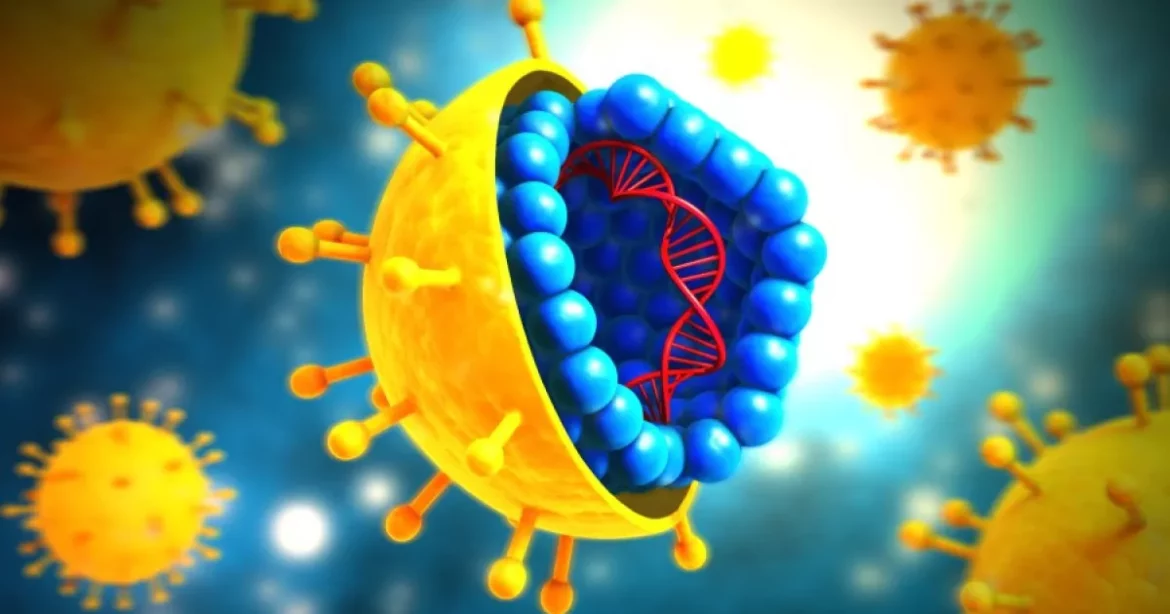Viruses are microscopic organisms that depend on the cells of other organisms to reproduce and propagate. They can infect a range of hosts, including plants, animals, and humans. While we commonly associate viral infections with the respiratory tract or the gastrointestinal system, viruses can also affect the heart—a condition known as viral myocarditis. This condition underscores the intricate ways viruses interact with cardiovascular tissues, leading to significant health challenges.
What Is Viral Myocarditis?
Myocarditis is an inflammation of the myocardium, the thick muscular layer of the heart wall. Although relatively rare, it can be serious, potentially leading to heart failure, sudden death, or chronic heart disease. Viruses are the most common cause of myocardial inflammation, although bacterial infections, autoimmune diseases, and environmental toxins are also known culprits.
Viral myocarditis typically starts with a viral infection elsewhere in the body. From there, the virus can spread to the heart, using the bloodstream as its transport mechanism. Several viruses have been implicated in myocarditis, including Coxsackievirus B (a type of enterovirus), adenovirus, parvovirus B19, human herpesvirus 6, and, more recently, severe acute respiratory syndrome coronavirus 2 (SARS-CoV-2), which causes COVID-19.
SEE ALSO: what causes a viral heart infection
How Does A Virus Enter Your Heart?
1. Viral Entry and Replication
To understand how viruses infect the heart, it is essential to grasp how they enter and replicate within human cells. Viruses are not cells; they are simply packets of genetic material (DNA or RNA) encased in a protein shell. Some viruses also have an outer lipid envelope. To reproduce, a virus must enter a host cell and hijack its machinery.
The process begins when a virus binds to specific receptors on the surface of a host cell. This receptor-virus interaction is highly specific—a key that fits only certain locks. This specificity partly explains why certain viruses infect heart cells. The heart cells (cardiomyocytes) express receptors that certain viruses can bind to.
Once inside the cell, the virus releases its genetic material, subverting the host cell’s machinery to produce viral proteins and replicate its genetic material. These new viral particles then assemble and exit the cell, typically killing the host cell in the process, and go on to infect other cells.
2. Immune Response and Inflammation
Following the initial phase of replication, the immune system responds to the infection. This response, while crucial to fighting the virus, can also contribute to heart damage. Immune cells flood the infected area, releasing inflammatory cytokines and other chemicals intended to eradicate the virus. However, this inflammatory response can also damage healthy heart tissue, leading to myocarditis.
The severity of myocarditis varies. In mild cases, patients may experience few or no symptoms, with the heart recovering without any intervention. In more severe cases, the inflammation can weaken the heart, lead to the formation of scar tissue, and disrupt the electrical pathways essential for maintaining a regular heartbeat. This can result in arrhythmias, heart block, or sudden cardiac death.
3. Direct and Indirect Viral Damage
The direct effects of viral infection and the indirect effects of the immune response can impair heart function. The direct cytopathic effects occur when the virus kills heart cells, while indirect effects are primarily due to the immune response and the systemic effects of infection, including fever, electrolyte imbalances, and hypoxia (low oxygen levels).
Clinical Presentation And Diagnosis
The symptoms of viral myocarditis can vary widely but typically include chest pain, shortness of breath, or palpitations.
Fever and symptoms of a viral infection, such as fatigue, a sore throat, or gastrointestinal upset, might precede these cardiac symptoms.
Diagnosing myocarditis involves a combination of clinical evaluation, laboratory testing, imaging, and sometimes endomyocardial biopsy. Elevated levels of cardiac enzymes in the blood, such as troponin, which is released when heart muscles are damaged, are a key indicator. Imaging studies like echocardiograms or magnetic resonance imaging (MRI) can show inflammation and changes in heart structure and function.
Treatment And Management
The primary treatment for viral myocarditis is supportive care, focusing on managing symptoms and supporting heart function while the body fights off the infection. This might include medications to manage heart failure symptoms or arrhythmias, and in severe cases, devices like pacemakers or defibrillators may be required.
Immunosuppressive therapies have been explored in cases where there is significant immune-mediated damage, although their effectiveness varies. Emerging treatments, such as antiviral drugs or therapies that specifically target the inflammatory response, are under investigation.
The Long-term Outlook
The long-term effects of viral myocarditis depend on the severity of the initial illness. While many patients recover with minimal to no lasting effects, some may develop chronic heart conditions like dilated cardiomyopathy or chronic heart failure.
Prevention Strategies
Preventing viral myocarditis involves general measures to reduce the risk of viral infections, such as vaccination, hand hygiene, and avoiding close contact with people who are sick. Public health strategies play a crucial role in managing outbreaks of viruses known to affect the heart.
Conclusion
Understanding how viruses infect the heart is essential for developing more effective treatments and prevention strategies for myocarditis and related conditions. Continued research into the interaction between viruses and the cardiovascular system is crucial as we encounter new viral pathogens and seek to reduce the cardiovascular consequences of these infections.

